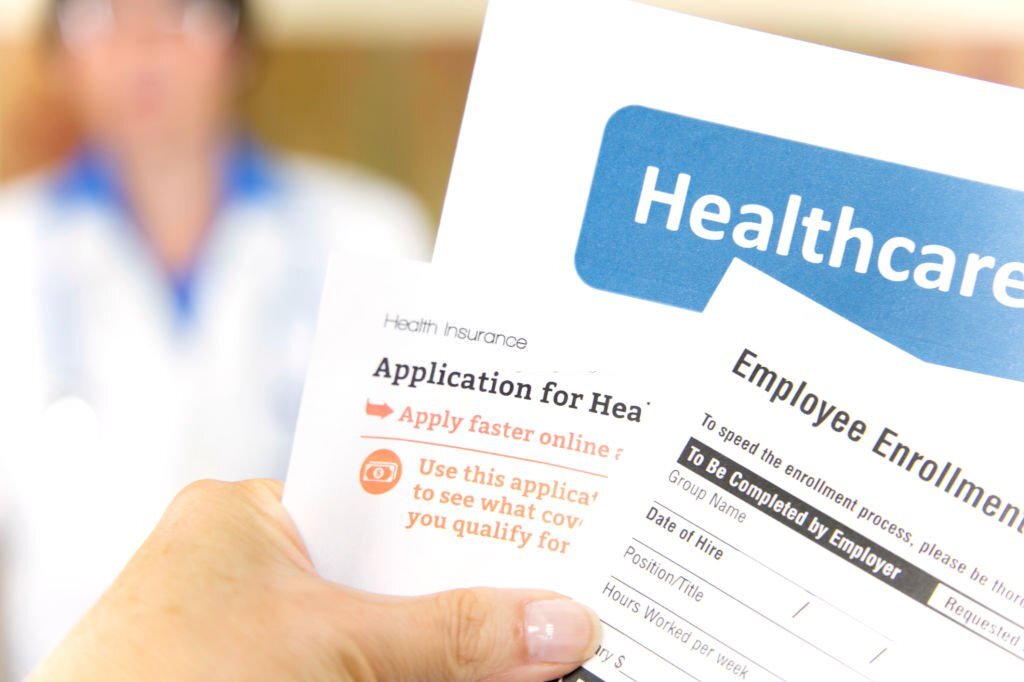Hit the Road with Confidence: 8 Essential Tips for Choosing the Right Auto Insurance
Purchasing auto insurance is not only a legal requirement in most places but also a critical step in safeguarding yourself and your vehicle. With numerous insurance providers and policies available, choosing the right auto insurance can be overwhelming. To help you navigate this process and make an informed decision, we’ve compiled eight essential tips that will allow you to hit the road with confidence and ensure adequate protection.
1. Introduction
When it comes to auto insurance, making the right choice is crucial. The right policy will not only protect you financially in case of an accident but also provide peace of mind during your everyday travels. To help you understand the key factors to consider when selecting auto insurance, this article presents eight essential tips that will guide you through the decision-making process.

2. Understanding the Importance of Auto Insurance
Auto insurance is designed to protect you and your vehicle in case of accidents, theft, or damage. It provides financial coverage for medical expenses, repairs, and potential legal liabilities resulting from an accident. By having the right auto insurance, you can drive confidently knowing that you are protected against unforeseen circumstances.
3. Assessing Your Coverage Needs
Before diving into the world of auto insurance, it’s important to assess your coverage needs. Consider the following factors to determine the appropriate level of coverage for your situation:
Determining State Requirements
First and foremost, familiarize yourself with the auto insurance requirements in your state. Each state has its own minimum coverage requirements, and it’s essential to meet or exceed these limits to comply with the law.
Evaluating Personal Needs and Vehicle Usage
Evaluate your personal needs and the way you use your vehicle. Are you a daily commuter, or do you use your car occasionally? Do you have valuable assets or savings that need protection? Understanding your personal circumstances will help you determine the necessary coverage types and policy limits.
4. Researching Different Types of Auto Insurance Policies
Auto insurance policies come in various types, each offering specific coverage. Familiarize yourself with the different options to make an informed decision:
Liability Insurance
Liability insurance covers bodily injury and property damage caused by you in an accident. This coverage is typically split into
two categories: bodily injury liability and property damage liability. It helps cover medical expenses, legal fees, and repairs for the other party involved in an accident you caused.
Collision Coverage
Collision coverage protects your vehicle in case of a collision with another vehicle or object, regardless of fault. It covers repair or replacement costs, ensuring that your car is restored to its pre-accident condition.
Comprehensive Coverage
Comprehensive coverage provides protection against non-collision incidents such as theft, vandalism, natural disasters, or falling objects. It covers the repair or replacement costs of your vehicle, offering peace of mind in various situations.
Personal Injury Protection (PIP)
PIP coverage pays for medical expenses and related costs for you and your passengers in the event of an accident, regardless of fault. It may also cover lost wages and other expenses, providing a comprehensive safety net.
Uninsured/Underinsured Motorist Coverage
Uninsured/underinsured motorist coverage protects you if you’re involved in an accident with a driver who doesn’t have insurance or has insufficient coverage. It covers medical expenses, repairs, and other damages caused by the at-fault party.

5. Comparing Insurance Providers
When selecting auto insurance, it’s crucial to compare different insurance providers. Consider the following factors:
Reputation and Financial Stability
Research the reputation and financial stability of insurance companies. Look for companies with a solid track record, positive customer reviews, and strong financial ratings. A reliable and stable insurance provider ensures that claims will be handled efficiently and your coverage will be honored.
Policy Features and Flexibility
Evaluate the policy features and flexibility offered by each insurance provider. Look for options such as accident forgiveness, vanishing deductibles, or flexible payment plans. Assess whether the policy aligns with your specific needs and preferences.
Customer Service and Claims Handling
Prompt and reliable customer service is crucial when dealing with insurance matters. Research how insurance companies handle claims and resolve customer inquiries. Quick and efficient claims processing can significantly reduce stress and streamline the repair or reimbursement process.
Pricing and Discounts
Compare pricing among different providers, keeping in mind that the cheapest option may not always be the best. Consider the overall value you receive for the premium paid. Look for discounts such as safe driver discounts, multi-policy discounts, or discounts for installing safety features in your vehicle.
6. Considering Deductibles and Limits
Deductibles and coverage limits play a vital role in your auto insurance policy. Consider the following factors when selecting appropriate deductibles and limits:
Choosing an Appropriate Deductible
A deductible is the amount you pay out of pocket before your insurance coverage kicks in. Opting for a higher deductible can lower your premium but means you’ll pay more in the event of a claim. Consider your financial situation and choose a deductible that you can comfortably afford.
Understanding Coverage Limits
Coverage limits refer to the maximum amount your insurance company will pay for a claim. Evaluate your assets and potential risks to determine appropriate coverage limits. It’s essential to strike a balance between adequate coverage and affordability.
7. Reviewing Additional Coverage Options
In addition to the standard coverage options, there are additional coverage choices that may benefit you:
Rental Car Coverage
Rental car coverage ensures that you have a replacement vehicle if your car is being repaired due to an accident. It covers the cost of renting a vehicle during the repair period.
Roadside Assistance
Roadside assistance provides help in case of vehicle breakdowns, flat tires, or lockouts. This coverage offers peace of mind knowing that help is just a phone call away.
Gap Insurance
Gap insurance covers the difference between the actual cash value of your vehicle and the amount
you owe on your car loan or lease. It can be beneficial if your vehicle is totaled or stolen, as it helps bridge the gap and ensures you’re not left with a financial burden.
8. Reading and Understanding Policy Documents
Before finalizing your auto insurance policy, it’s crucial to read and understand the policy documents. Pay attention to the following:
Policy Exclusions and Limitations
Review the policy exclusions and limitations to understand what is not covered by your insurance. This helps you avoid surprises and ensures you have realistic expectations regarding your coverage.
Policy Renewal Terms
Understand the policy renewal terms, including any changes that may occur at renewal. Be aware of any rate adjustments, coverage modifications, or additional requirements that may come into effect.
Policy Cancellation and Changes
Familiarize yourself with the policy cancellation and changes process. Know the procedures, timelines, and any associated fees or penalties. Being informed allows you to make adjustments or switch providers if necessary.

9. Seeking Expert Advice
If you’re unsure about certain aspects of auto insurance or need personalized guidance, consider seeking expert advice:
Insurance Agents and Brokers
Consulting with insurance agents or brokers can provide valuable insights and help you navigate the complexities of auto insurance. They can assess your needs, recommend suitable policies, and answer any questions you may have.
Online Resources and Forums
Utilize online resources and forums dedicated to auto insurance. Research reputable websites, read articles, and engage in discussions to gain a better understanding of the industry, policy options, and customer experiences.
10. Making an Informed Decision
Armed with the knowledge gained from assessing your needs, researching policies, comparing providers, and understanding the fine print, you’re now equipped to make an informed decision. Select the auto insurance policy that best aligns with your requirements, provides adequate coverage, and offers peace of mind.
11. Conclusion
Choosing the right auto insurance is a crucial step for any vehicle owner. By understanding your coverage needs, researching policy options, comparing providers, and considering additional coverage choices, you can ensure that you hit the road with confidence. Remember to carefully read and understand policy documents, seek expert advice when needed, and make an informed decision based on your unique circumstances.

12. FAQs
Can I switch auto insurance providers anytime?
Yes, you can switch auto insurance providers at any time. However, it’s important to consider the cancellation process, potential fees, and the timing of the switch to avoid coverage gaps.
What factors can affect my auto insurance premium?
Several factors can influence your auto insurance premium, including your driving record, age, location, vehicle type, coverage limits, and deductibles. Your credit score and claims history may also play a role.
Is it necessary to have full coverage auto insurance?
Full coverage auto insurance, which includes comprehensive and collision coverage, is not always necessary. The decision depends on factors such as the value of your vehicle, your financial situation, and your risk tolerance.
Can my credit score impact my auto insurance rates?
Yes, in many cases, insurance companies consider credit scores when determining auto insurance rates. A higher credit score may lead to lower premiums, as it is seen as an indicator of responsible financial behavior.
What should I do if I’m involved in an accident?
If you’re involved in an accident, prioritize safety first. Contact the authorities, exchange information with the other party, and document the incident. Notify your insurance provider as soon as possible to initiate the claims process.







